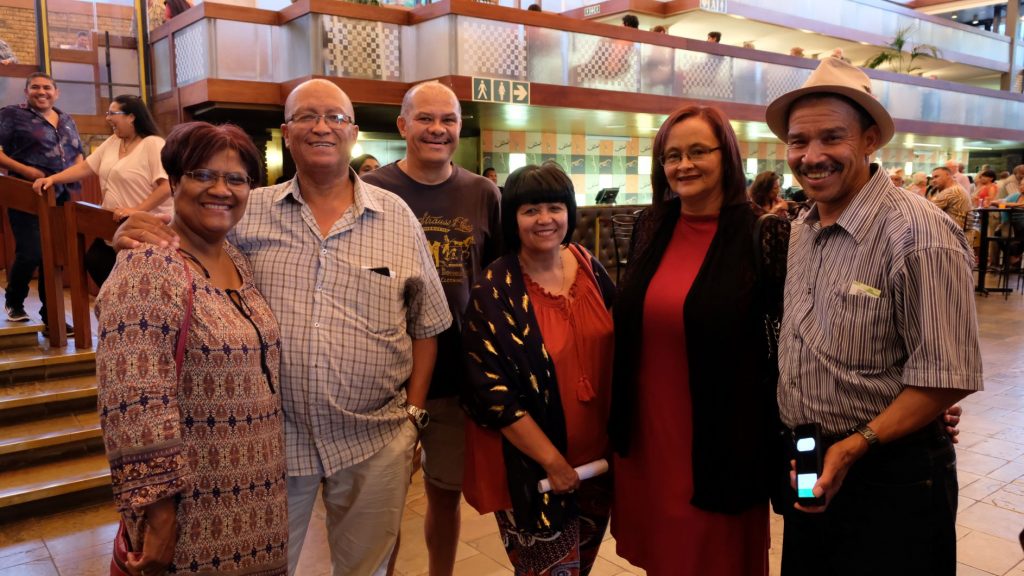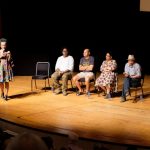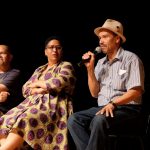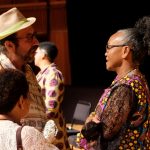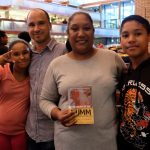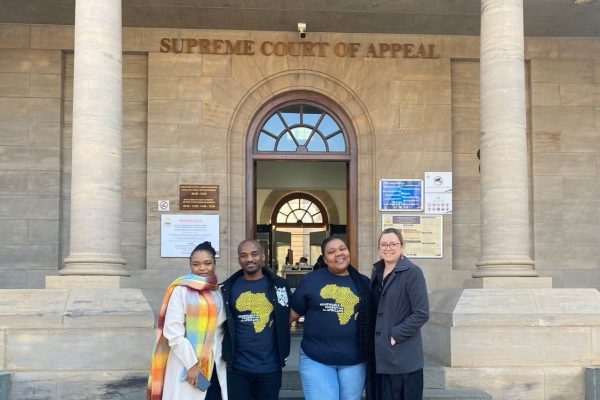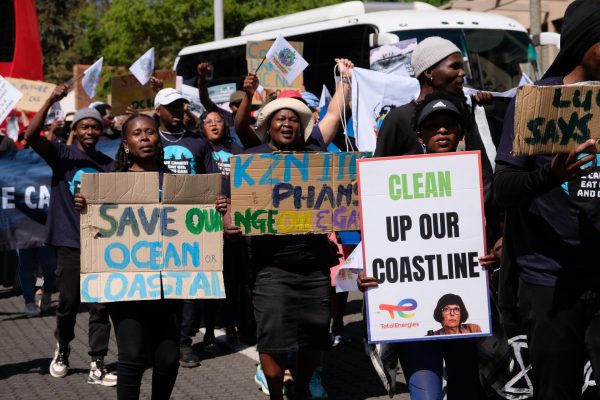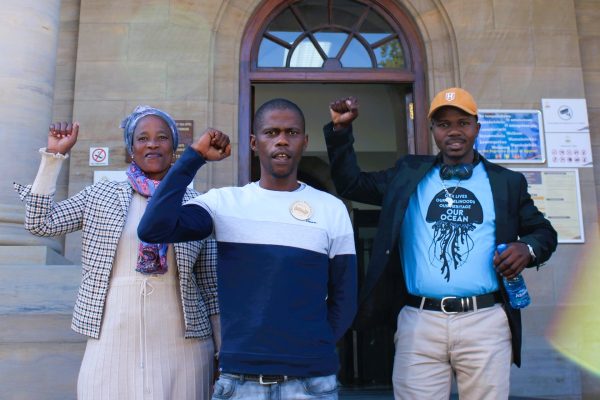In a heartwarming show of solidarity, an estimated 300 people attended a screening of the documentary, “Rooibos Restitution” (made in a collaboration between Heinrich Boll Stiftung Foundation and Natural Justice), which was organised to raise funds for the indigenous community of Wupperthal. Held at the Baxter Theatre in Cape Town on 31 January 2019, the screening was followed by a discussion with two members of the Wupperthal community, including Barend Salomo, a local rooibos indigenous farmer and community leader.
The fundraiser was organised following the devastation of the Wupperthal community’s historic homes in a New Year’s fire. Built in the 1800s, the village is a cultural asset to South Africa and the rebuilding of the houses is a priority for the 200 affected people.
However, Wupperthal also contains a natural asset, lying at the heart of wild rooibos territory. Rooibos (or red bush) is endemic to South Africa and most people will know it as a non-caffeinated tea. An audience member from the United Kingdom asked how she could tell the difference between different brands of rooibos in terms of flavour and quality, and was assured that rooibos grown in the Wupperthal region was strong, aromatic wild rooibos tea with a distinctive flavour.
The secrets of the uses of rooibos, which is also used to treat a number of ailments, were held for centuries by the San and Khoi Khoi who traversed the area. How this knowledge was appropriated, and eventually commercialized by “outsiders” to further develop a thriving rooibos industry, is the story at the heart of “Rooibos Restitution”.
The film follows the struggle of the indigenous San and Khoi Khoi to be recognised as the original knowledge holders to the uses of rooibos. The filmmaker, Sylvia Vollenhoven, wrote an article detailing this story for online publication, The Journalist, in which she also argues that their battle is a battle fought on behalf of all of us, and what they achieved in South Africa is groundbreaking.
It is a very compelling story which set the scene for further discussions with the audience attending the screening, many of whom had not heard about some of the issues before. The dual struggle, both to be acknowledged as indigenous knowledge holders, but also to rebuild their community, invoked strong emotions for some audience members, with one woman speaking of her and her community’s desire to “go home” – both referring to going back to the home of Wupperthal, but also to the spiritual and historical time when the Khoi and San lived a traditional and dignified life.
“It was a deeply touching evening as the story of Rooibos in the Cederberg was unfolding. It was a story of hope and dignity. The discussion after the movie between the audience and Wupperthal community representatives was very engaging. It felt like one big community in the room irrespective of people’s backgrounds. There was a strong show of solidarity. Given the current levels of despair around the world, this story of a community struggle and victory adds to other similar stories emerging from indigenous communities who are standing up and providing the leadership that is absolutely crucial for people and planet,” said Pooven Moodley, Director of Natural Justice.
Thank you to everyone who attended. We hope you will continue to support the courageous Wupperthal community as they navigate their return home.
A word from Lesle Jansen, one of the lawyers for the Khoi and San during this process: “We would like to express a heartfelt appreciation to an exceptional indigenous filmmaker, Sylvia Vollenhoven. She took the initiative, planned and supported a highly successful fundraiser for the Wupperthal community who can now use these initial funds in rebuilding their village on their own terms.”
You can view the full film of “Rooibos Restitution” on Youtube here.

